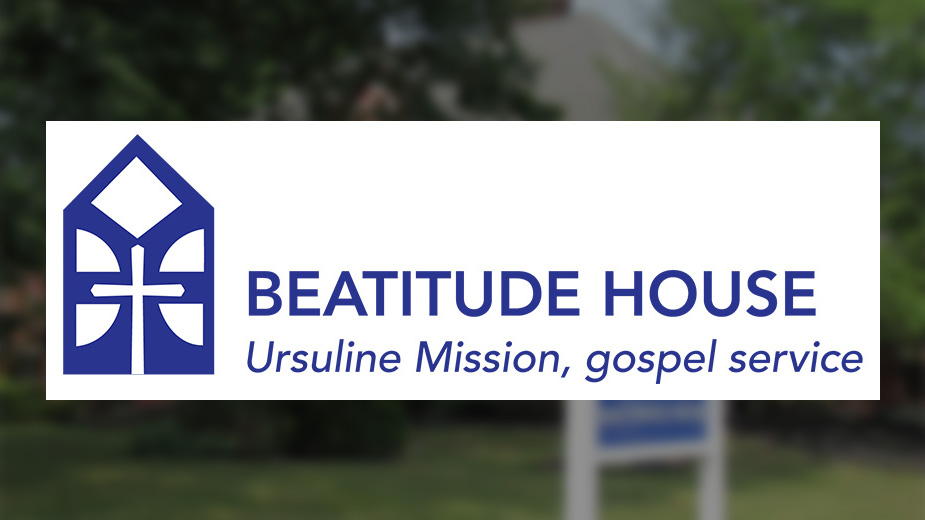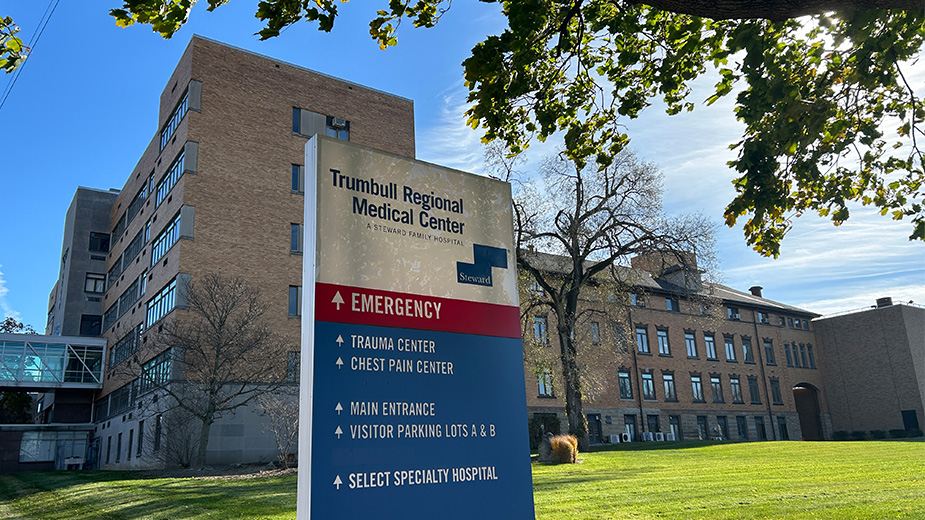Breast Cancer Meets Its Match at Abdu Center
YOUNGSTOWN, Ohio – The mortality rate for breast cancer in the Mahoning Valley is among the highest in the nation, Dr. Rashid Abdu says. It’s a distinction he would like to see the area shed.
Abdu, a surgeon affiliated with St. Elizabeth Hospital in Youngstown, was the driving force behind the creation of the Joanie Abdu Comprehensive Breast Care Center. Getting the local mortality rates to or below the national rate “is our ultimate goal and we are going to do it,” he declares.
The center, on the Youngstown campus of St. Elizabeth Hospital, offers prevention, early detection, diagnostic and support services, providing patents an alternative to driving to larger markets.
In Mahoning County, the breast cancer mortality rate is 28.6 per 100,000 people, according to the 2015 Susan G. Komen Northeast Ohio Community Profile Report. The Trumbull County breast cancer mortality rate is 22.1 per 100,000.Columbiana County’s rate is 20.4 per 100,000.
Those statistics compare to a 22.6 mortality rate nationally and 24.8 for Ohio.
Reducing local rates to or below the national level is one of the Abdu Center’s objectives. “That’s our goal. That’s the dream,” Abdu remarks.
The Abdu Center, which opened in 2011, features breast-specific state-of-the-art technology that includes 3-D digital mammography, molecular breast imaging and stereotactic breast biopsy as well as surgical and medical oncology consultations, community outreach and education programs, reports Juli Dulay, its manager.
“It’s amazing. The center is how health care should be everywhere,” Dulay observes. “What really makes us unique is we have this wonderful, calm, healing environment that’s coupled with state-of-the-art technology and a true interdisciplinary team approach.”
The Abdu Center does not track the number of patients it has seen, but Dulay estimates at least 1,000 patients come through its doors annually. It has conducted 36,778 exams from Nov. 14, 2011, through Aug. 31 and diagnosed 465 cancers in that interval, she reports.
“One of the things we are truly proud of is we are the Valley’s only nationally accredited breast imaging center and we’re also designated as a ‘Breast Imaging Center of Excellence’ by the American College of Radiology,” Dulay says.
Something else that makes the center unique is the interdisciplinary conference held each week, she notes. The conference includes a radiologist, a pathologist, a surgical oncologist and a radiation oncologist.
“They volunteer their time because they believe that interdisciplinary conferences result in better outcomes for patients,” she says. Within two weeks of a diagnosis, a comprehensive plan of care comes from that conference to address issues that range from the type of surgery required to whether the patient needs radiation or chemotherapy.
On a recent visit, an inspector who travels throughout the country told Abdu he had never seen a better conference, the physician recalls. And when the inspector learned that a patient’s surgeon is sent a report from the conference should he be unavailable to attend, he said that is unprecedented and that it should be included in the national standards.
Another goal of the center is to decrease the diagnostic process, Dulay adds. If the doctor looks at a mammogram and determines an ultrasound is needed, the patient would be scheduled for the procedure that day rather than sent home and scheduled for a follow-up visit.
“Pathology takes two days no matter what,” Dulay says, “but if we can eliminate them having to come back and forth for diagnostic tests, we decrease the anxiety amazingly.”
Another measure to minimize patient anxiety is the décor of the center, which features muted colors and calming music.
“The environment here is very intentional,” Dulay says. “As the center was being developed, we worked with breast cancer survivors and they told us they did not want to feel like they were in a hospital, that white, sterile environment. They wanted to feel like they were in a spa.”
The benefit is less anxiety. Patients with anxiety have higher blood pressure, faster pulse rates and increased difficulty processing information.
“It’s amazing how much the environment is important to our patients,” Dulay says.
Abdu recalls an email a patient sent him. The patient said she used to dread undergoing a mammogram but now looks “forward with joy” to having the test performed at the Abdu Center.
Sister Marie Maravola of Niles, diagnosed with cancer in February, praises the center and its staff, who “really are doing what they were meant to do,” she says.
“The center has been absolutely wonderful as far as their care. Their expertise and knowledge is a big part of what helps get me through this,” Maravola says.
Adds Dulay, “One of the messages that we want to take out to the community is the importance of early intervention, early diagnosis. That improves outcomes, particularly in breast cancer.
“Ohio has the fourth-highest mortality rate in our nation and one of the principles that the center was founded on was to decrease that mortality rate, so our outreach program is huge,” she continues. “We believe through education we can help to change those statistics.”
Another component of the program is making breast care available to women in the Mahoning Valley regardless of their ability to pay, a need met through Joanie’s Promise. Joanie’s Promise assures that women, whether underinsured or uninsured, will receive breast care services.
The reason the breast cancer mortality rate in the Mahoning Valley is among the highest in the nation is the number of women who lack education, resources or transportation, or a combination of all three, Abdu says.
The center has a full-time community liaison who goes throughout the Mahoning Valley to educate women about breast cancer and the importance of self-examination and early diagnosis.
Joanie’s Promise provides funds for breast-related diagnostic serv-ices. It receives funding from the annual Panerathon at the Covelli Centre downtown and produced by Covelli Enterprises. Abdu says he anticipated about 500 would participate in the first Panerathon, held in 2010, and more than 3,000 showed up. The most recent event, held Aug. 30, drew more than 10,000 participants.
“It was just magnificent,” he remarks. “People were having a great time. It was like a great community party.”
The Panerathon, which Covelli Enterprises reports has raised $1.3 million over the years for Joanie’s Promise, provides an “immeasurable” value to the Abdu Center beyond its role as a fundraising tool, says Jim Schultis, president of the Mercy Health Foundation Mahoning Valley.
“I would say to some degree that’s helped put the Joanie Abdu Center on the map,” he says. Attempting to buy the level of community awareness the event generates “would be costly beyond belief,” he says.
Dulay reports signs of progress in improving the local breast cancer mortality rates. In 2012 and 2013, the greatest percentage of cancers diagnosed was at Stage 2. Last year, a greater percentage was detected at Stage 1. “On the local level and for the population that we serve, we’re starting to see patients come in sooner and we’re finding those cancers a bit sooner,” she says. “That ultimately will help to change those statistics in our region and the state.”
A new outreach tool for the center, a mobile unit, will make its debut about a year from now, Abdu and Schultis report.
“This mobile unit will have the latest and the best,” including 3-D digital mammography equipment and a small bone density scanner for feet, Abdu says.
If a problem is detected in the scan of the foot bone, the patient is referred for a body bone density scan at the Abdu Center.
Should the technician on site find an anomaly in the mammogram, it is sent to the radiology department and the patient is scheduled immediately.
Funding for the mobile unit, estimated to cost about $1 million, will come primarily from money raised by the Panerathon, and the plan is for the mobile unit to make its debut at the 2016 fundraiser.
“I would like everybody to understand when they see that van if they ran in that race or if they showed up for Panerathon, if they did anything,” Schultis says, “it’s because of them.”
Abdu’s wife, Joanie, was diagnosed with an aggressive form of breast cancer in 1993 and the Abdus traveled between Pittsburgh and Cleveland for care. Rashid Abdu had heard of a comprehensive breast care center in Long Beach, Calif., and visited it.
“I was so impressed with that center, the way they took care of the patients, the interdisciplinary team, and everything was in one place,” he recalls. Before Joanie Abdu died in 1994, he promised her that such a center would be established in Youngstown and proposed it to St. Elizabeth’s board of directors.
Despite “frustrations” in the years that followed, “I would not let go of this,” he says. About five years ago, he shared his goals and frustration with Schultis.
“We did not know how the community would embrace it but they sure did,” Abdu says.
“When you have a project, you have a pretty good idea perhaps that the community is going to share in your desire to have that project, but you don’t know for sure,” Schultis says. He, Abdu and Gina Marinelli, a development officer with the foundation, gauged community support.
“We didn’t go out with any intention to ask for any money and we made that very clear, but we did want their input,” Schultis recalls. “It was pretty clear to us that this was something that the community also saw a great need and really wanted.”
Pictured: Mercy Health Foundation Mahoning Valley President James Schultis, center manager Juli Dulay and Joanie Abdu Comprehensive Breast Care Center founder Rashid Abdu, say the center’s goal of reducing breast cancer mortality in the Valley is being met.
Copyright 2024 The Business Journal, Youngstown, Ohio.



